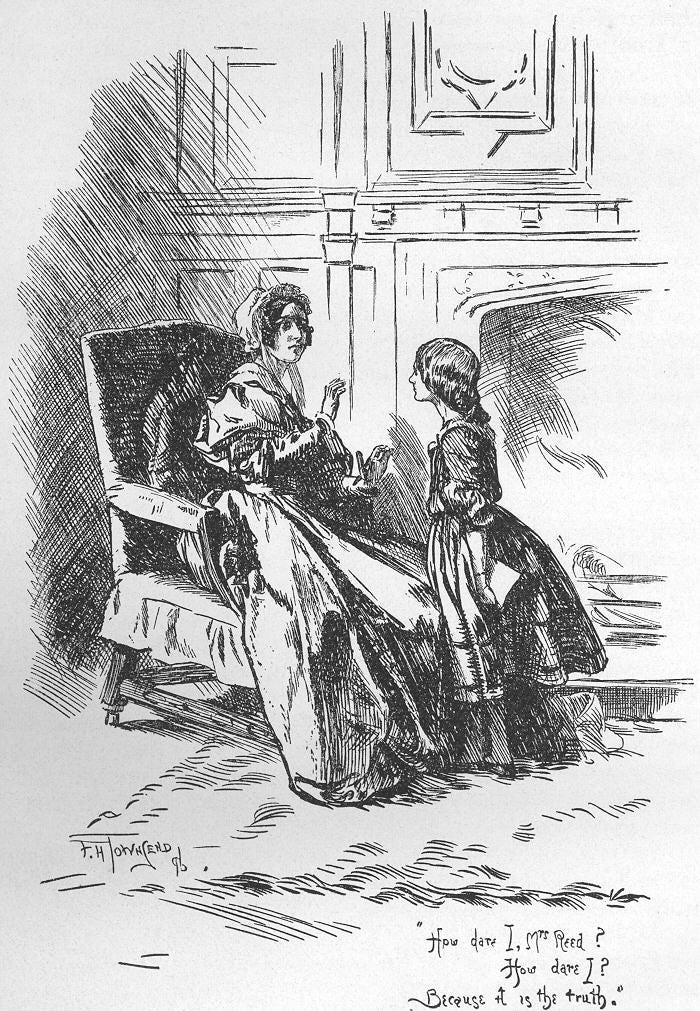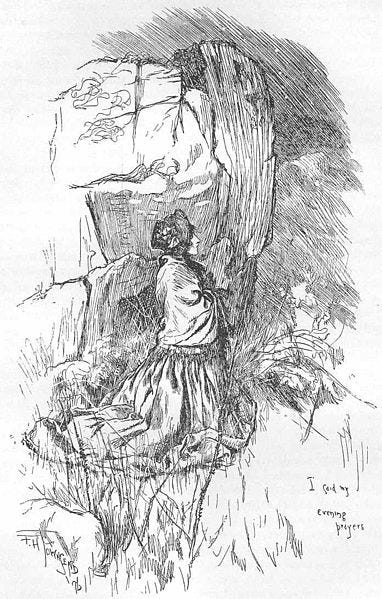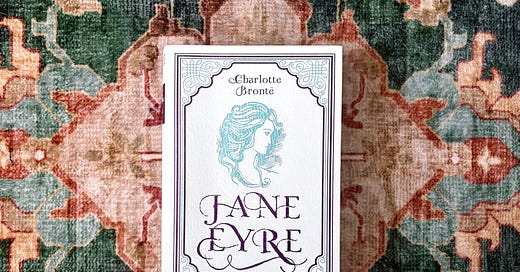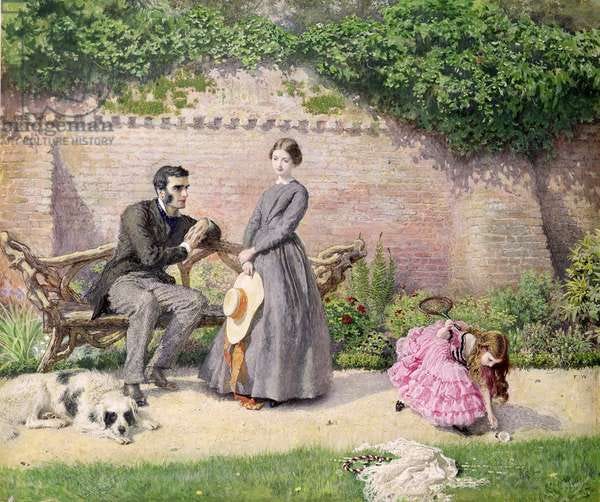(Warning: There are spoilers ahead but you have had 64000 days to read it.)
Reading ‘Jane Eyre’ as an adult has been a transformative experience. This gothic masterpiece, spanning approximately 600 pages in its original form, is a truly captivating read from start to finish. Not a single word or plot point feels unnecessary or misplaced—a testament to Charlotte Brontë's exceptional storytelling.
Rather than diving into the overarching themes that other reviewers often address more comprehensively, I’ll focus on the elements that resonated with me on a personal level.
1. Jane’s Unyielding Sense of Self
From childhood, Jane Eyre possesses a remarkable sense of self-worth, which she steadfastly defends against injustice. Despite enduring a loveless upbringing, she never internalizes the cruelty of her aunt or cousins. Jane’s boldness is evident in how she confronts her abusive cousin John and unapologetically calls out her aunt’s failures as a guardian before leaving for the boarding school Lowood. At Lowood, the school’s proprieter Mr. Brocklehurst, whose opinion of Jane has been coloured by his conversations with her aunt, reprimands her in front of all the students. Jane still manages to confide in the headmistress of her truth and manages to clear her name.

Jane’s resolve is even more striking in her adult life. Though she loves Mr. Edward Rochester deeply, she refuses to compromise her principles by becoming his mistress. Her decision to leave his home at Thornfield, even at great personal cost, showcases her unwavering integrity. In a time when women were often expected to endure mistreatment quietly, Jane’s refusal to accept injustice is nothing short of revolutionary.
2. Jane’s Radical Honesty
Jane’s honesty is another quality that stood out to me. Women in her time—and arguably even today—are often expected to be grateful for their circumstances, regardless of their feelings. Yet Jane refuses to feign contentment. She openly admits her dissatisfaction with her life at her aunt’s grand home, expresses her restlessness at Thornfield despite its stability, and views her teaching position at Morton as merely a job, without romanticizing it.
There’s something refreshing and inspiring about a woman who doesn’t feel obligated to mask her emotions or present an idealized version of herself.
3. The Fundamental Need for Love
One of the novel’s most poignant themes is the universal human need for love in its many forms—familial, platonic, societal, and romantic. Jane’s early life at Gateshead could have easily left her embittered and hopeless. Yet thanks to Helen Burns, her dear friend at Lowood, Jane learns to see light even in dark moments and continues to yearn for love. Over time, she receives the love she seeks from different people: familial love from the Rivers siblings, societal respect through her work, and romantic love from Mr. Rochester.
4. Christians and Christianity
‘Jane Eyre’ offers a nuanced critique of Christianity, particularly of those who weaponize faith for control or hypocrisy. Mr. Brocklehurst as a man of the cloth, demands self-denial and sacrifice from the girls at Lowood school while his own family lives in luxury. St. John Rivers, while devout and committed to his missionary work, attempts to impose his rigid definition of “God’s will” on Jane, even guilting her into considering a loveless marriage with him. Elisa Reed, Jane’s cousin is obsessed with religion to the point of leaving her wealth behind and joining a convent, but when it came to caring for the people around her (her dying mother, her ostracized cousin, her melancholic sister), she is cold and compassionless.
In contrast, Jane, who has no overt religious mentor aside from her childhood friend Helen Burns, embodies Christlike compassion and integrity. Jane, as she grows up, forgives her cruel aunt and cares for her in her final days without expecting reconciliation. She resists St. John’s manipulative guilt trips and refuses to compromise her morals by becoming Mr. Rochester’s mistress.

This exploration of religion highlights the difference between adhering to dogma and living a truly Christlike life.
5. The Richness of Classic Literature
Reading ‘Jane Eyre’ reminded me of what many contemporary novels lack. While modern protagonists often grapple with similar themes—seeking love, fulfillment, and meaning—the depth and complexity of Brontë’s writing set this novel apart. The feminist undertones, layered characters, and moral dilemmas feel richer and more profound than much of what we encounter in today’s literature.
In sum, ‘Jane Eyre’ is a timeless gem that rewards readers with every page. It’s not just a novel—it’s an experience, and one I’m grateful to have revisited as an adult.
A thought to ponder on..
The biggest trauma from Jane Eyre’s childhood is being locked in a room as a child after being falsely accused of hurting her cousin and not being allowed to defend her innocence. This inexplicibly cruel act inflicted on her by her aunt, wounds Jane for years to come and leaves a lasting impression on her psyche. We are then later introduced to Bertha, Mr. Rochester’s first wife, a mentally ill woman who is caged against her will in the attic at Thornfield. While her illness has no name in this book, it is clear that Bertha disagrees with her treatment and is retaliating against the way she is being locked up. I wonder if Charlotte Bronte intended for us to draw parallels between Jane and Bertha’s traumas in this way and if she did, why Jane never made the connection or felt any empathy for Bertha. While I understand the mental illnesses were not treated kindly by society or literature in the past, I wonder if Bertha’s life would be a promising premise for a modern spin-off or re-telling.






Mine too!!!